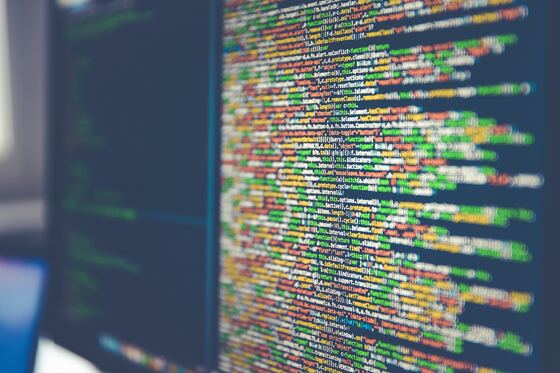Welcome to the future of B2B procurement! Gone are the days of tedious manual processes and endless paperwork. In today’s fast-paced business world, Artificial Intelligence (AI) is revolutionizing how companies streamline their procurement operations. Get ready to dive into the exciting ways AI is transforming B2B procurement processes and discover the countless benefits it brings to businesses worldwide. Let’s explore this cutting-edge technology together!
The Rise of AI in Business Operations
Business operations have evolved significantly with the rise of Artificial Intelligence (AI). Companies are increasingly leveraging AI technology to streamline their processes and enhance efficiency. From automating repetitive tasks to predicting future trends, AI is reshaping the way organizations operate.
One key aspect of AI in business operations is its ability to analyze vast amounts of data quickly and accurately. This enables businesses to make informed decisions based on real-time insights rather than relying on historical data alone. Additionally, AI can identify patterns and anomalies that may go unnoticed by human analysts, leading to more proactive decision-making.
AI-powered tools like predictive analytics and machine learning algorithms help businesses forecast demand, optimize inventory levels, and improve supply chain management. By harnessing these capabilities, companies can reduce costs, minimize risks, and ultimately drive growth in a highly competitive market landscape.
The rise of AI in business operations marks a new era of innovation and optimization for enterprises across industries. As organizations continue to embrace this transformative technology, we can expect further advancements in how they operate and deliver value to customers.
How AI is Transforming B2B Procurement Processes
Artificial Intelligence (AI) is revolutionizing B2B procurement processes by streamlining operations and enhancing efficiency. Through advanced algorithms and machine learning capabilities, AI can analyze vast amounts of data to identify trends, predict demand, and optimize supply chain management. By automating routine tasks such as invoice processing and vendor selection, AI frees up valuable time for procurement professionals to focus on strategic decision-making.
AI-powered tools enable real-time monitoring of inventory levels and pricing fluctuations, allowing businesses to make informed purchasing decisions promptly. The ability of AI to learn from past transactions and adapt to changing market conditions ensures that procurement processes remain agile and responsive. Additionally, AI enhances collaboration between different departments within an organization by providing a centralized platform for communication and data sharing.
The integration of AI in B2B procurement processes represents a significant paradigm shift towards smarter, more efficient operations that drive sustainable growth in today’s competitive business landscape.
Benefits of using AI in procurement
When it comes to B2B procurement processes, AI is a game-changer. The benefits of using AI in procurement are vast and impactful.
AI can automate repetitive tasks like data entry and analysis, saving time and reducing human error. This efficiency translates into cost savings for businesses.
AI can analyze vast amounts of data quickly and accurately to provide valuable insights for decision-making. This helps businesses make more informed choices based on real-time information.
AI-powered systems can enhance supplier relationship management by identifying trends and patterns that humans may overlook. This leads to improved supplier performance and stronger partnerships.
AI enables predictive analytics that forecast market trends and demand fluctuations, allowing businesses to adapt their strategies proactively.
Challenges and Limitations of AI in Procurement
Embracing AI in procurement comes with its set of challenges and limitations. One major hurdle is the initial investment required to implement AI technologies, which can be daunting for some businesses. Additionally, there may be resistance from employees who fear that AI will replace their roles or lack the necessary skills to work alongside these new technologies.
Another challenge is ensuring data accuracy and quality when utilizing AI for decision-making processes. Without clean and reliable data, the insights generated by AI algorithms may be flawed or misleading. Moreover, privacy concerns surrounding sensitive business information being processed by AI systems raise valid questions about security and compliance.
The complexity of integrating AI tools with existing procurement systems also poses a challenge, as it requires thorough planning and coordination across different departments within an organization. Furthermore, the rapid evolution of AI technology means that companies need to continuously adapt and upgrade their systems to stay competitive in the market.
Companies Successfully Using AI in Procurement
Let’s delve into some real-world examples of how companies are leveraging AI to streamline their procurement processes. Company A, a global tech giant, has implemented AI-powered algorithms to analyze historical data and predict future demand accurately. This has significantly reduced inventory costs and improved order accuracy.
Company B, a leading e-commerce retailer, utilizes AI chatbots to automate supplier communications and expedite the approval process for purchase orders. As a result, they have seen a notable increase in efficiency and cost savings.
Another success story is Company C, a manufacturing company that uses AI-driven analytics to optimize sourcing strategies and negotiate better deals with suppliers. By harnessing the power of AI, they have enhanced vendor relationships and secured more competitive pricing.
These case studies demonstrate the tangible benefits that AI can bring to B2B procurement operations when effectively implemented.
Conclusion
In today’s fast-paced business world, the role of artificial intelligence in streamlining B2B procurement processes cannot be overstated. AI has revolutionized how businesses manage their procurement operations by automating tasks, improving decision-making processes, and enhancing overall efficiency.
Companies that embrace AI in their procurement workflows stand to benefit from increased cost savings, improved supplier relationships, enhanced data accuracy, and better risk management. While there are challenges and limitations to consider when implementing AI in procurement, the potential rewards far outweigh the obstacles.
As technology continues to advance at a rapid pace, it is clear that AI will play an increasingly vital role in optimizing B2B procurement processes. By leveraging the power of artificial intelligence, businesses can stay ahead of the curve and drive success in today’s competitive marketplace.



